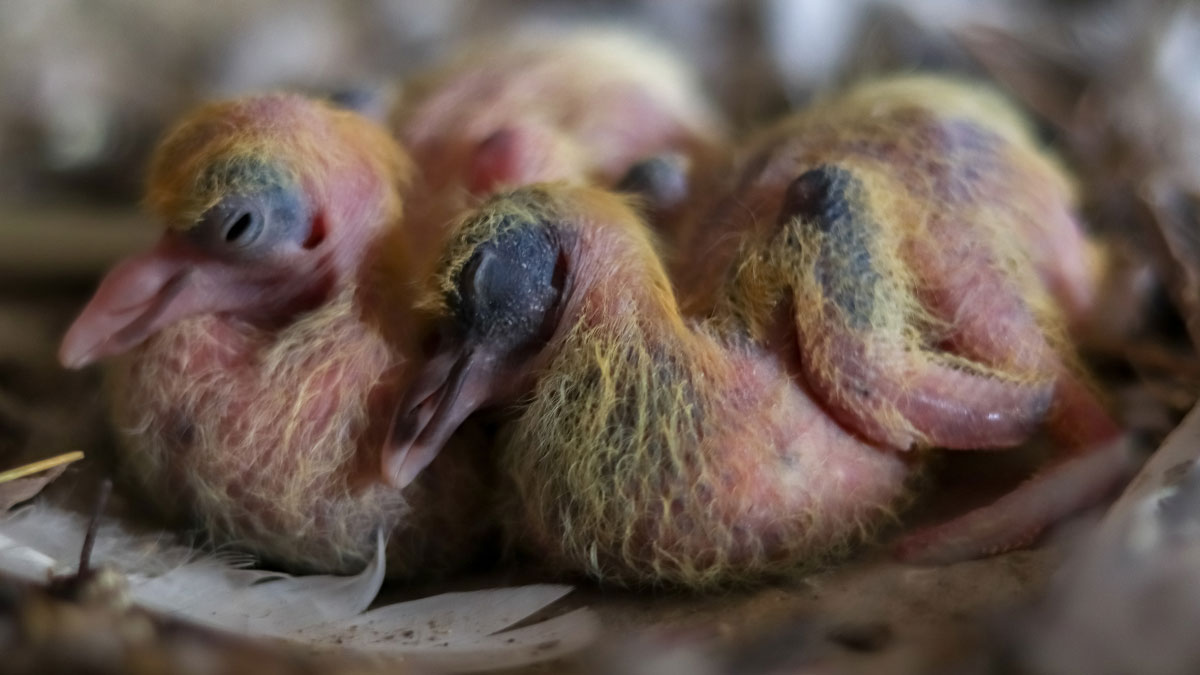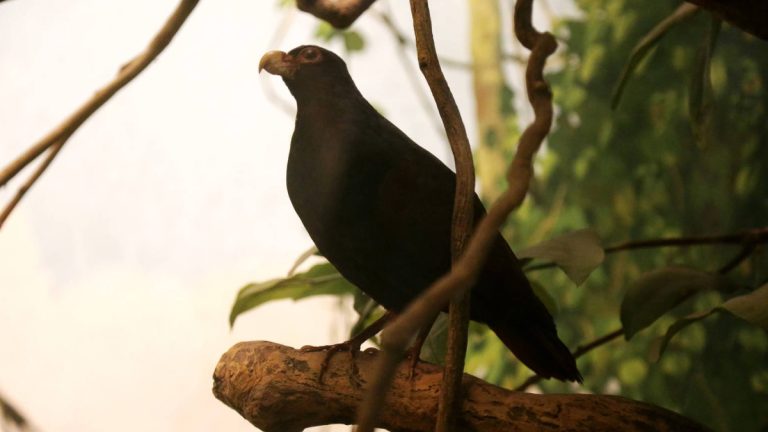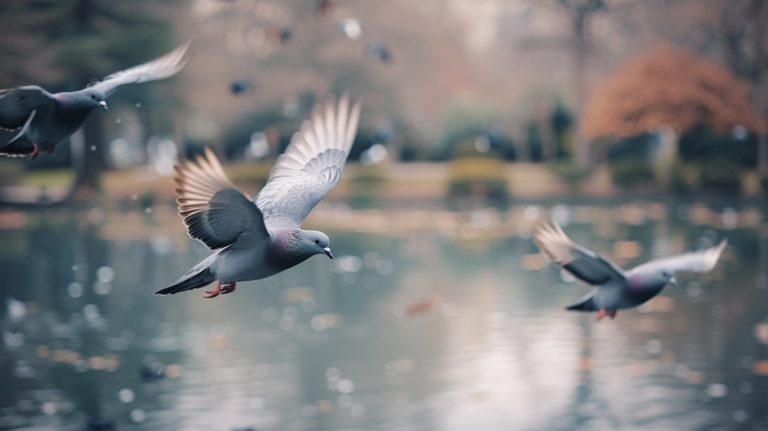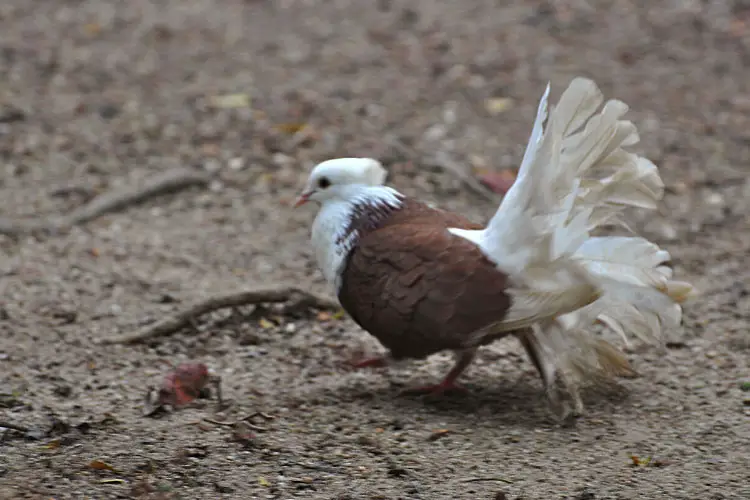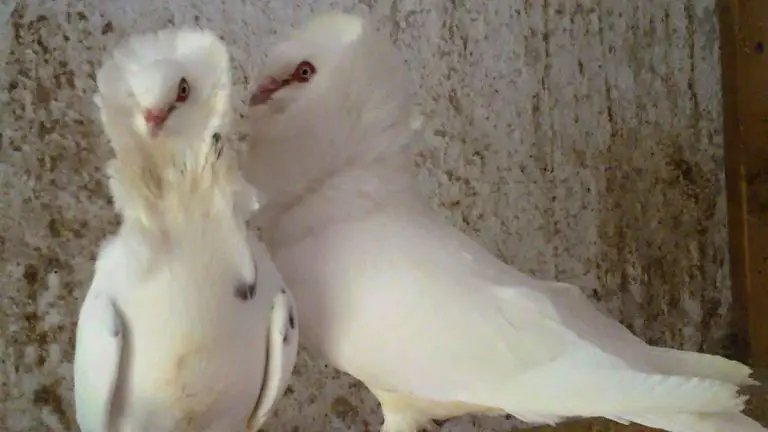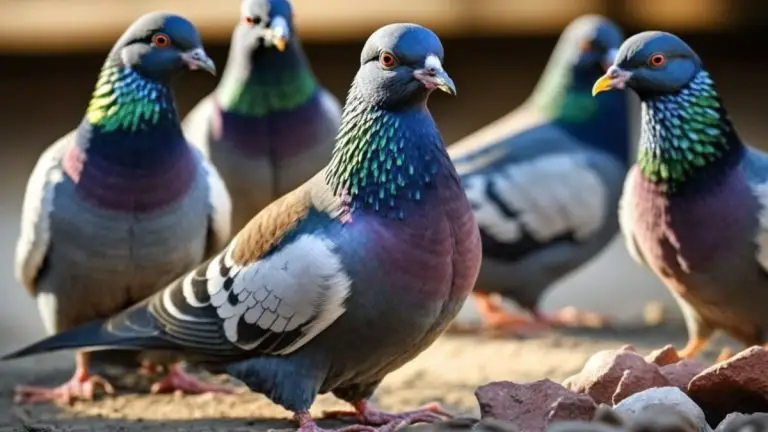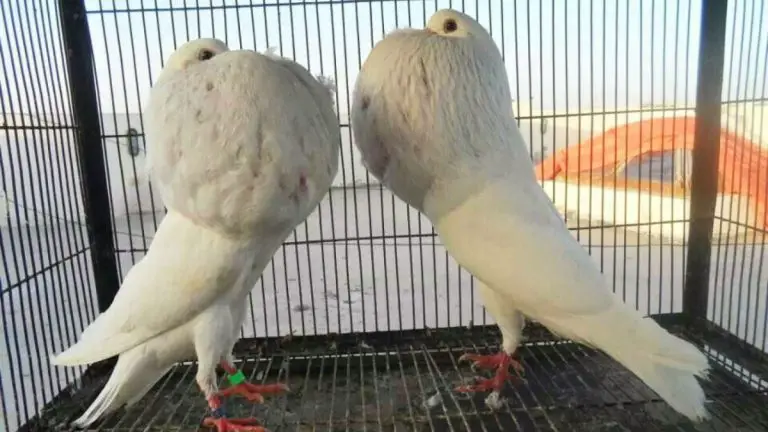What Do Baby Pigeons Eat? All You Need To Know About Feeding Baby Pigeons
Whether you’re trying to save an abandoned pigeon or are trying to feed baby pigeons you’ve bred in your house, knowing about its diet can be helpful. Baby pigeons get crop milk from their parents. But if the parents are unavailable for the baby bird, feeding it will have to be done with a crop milk substitute.
So what do baby pigeons eat? Baby pigeons are usually fed crop milk by their parents until they’re at least 3 weeks old, as we mentioned before. Once they reach that age, they are then fed with varied items such as seeds, fruits. However, pigeon keepers usually will feed baby pigeons formula mixtures.
In this guide we’ll learn about a baby pigeon’s diet and then we’ll see how you can feed one yourself. We’ll also talk about some more alternative foods you can feed to a baby pigeon.
What Do Baby Pigeons Eat?
Baby pigeons rely on their parents to feed and they’re mainly fed crop milk. Crop milk is a liquid produced by adult pigeons that is a mixture of nutrients coming from the food while it’s being digested. This liquid is necessary for a baby’s growth in the first week of its birth.
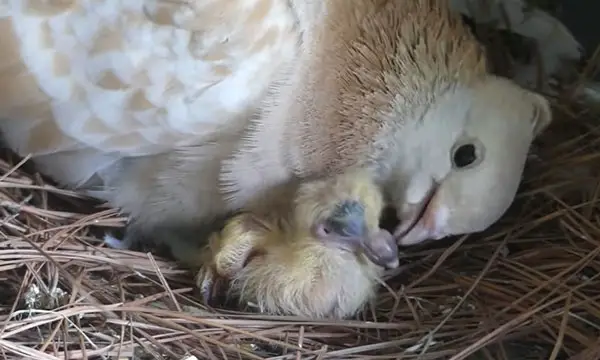
But if you’re breeding pigeons or raising a baby on your own, you may need to feed the baby pigeon yourself. In that case, you’ll use a bird formula mixture. A bird formula is just another name for a food designed for feeding baby birds. Formulas come in dry, powder form and can be fed after being mixed in water.
How To Feed Baby Pigeons Formula Mixture?
Before feeding your baby pigeon, you will need the following elements.
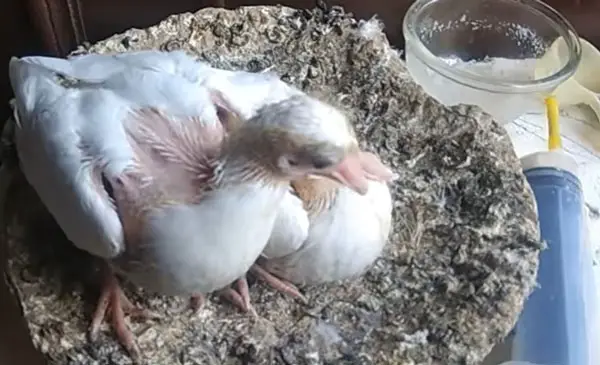
Things you need:
- Plastic feeding syringes
- Pigeon formula mix
- Heat pad
You may need to feed the baby yourself because the parents are ignoring the baby or they may have abandoned it. Whatever the reason, you can start feeding by following a few simple steps.
By the way, for a baby pigeon, it’s vital to stay in a warm place. Baby birds can’t stand cold and if they stay in a cold place for a long time, it’ll damage the bird’s digestive system and immunity.
Keep a heat pad under the baby pigeon’s cage or box. If you have a 40-watt bulb, it’ll work fine too. Any of these two heating methods is fine.
Now let’s talk about the steps you need to follow to feed a baby pigeon.
Step 1: Getting The Right Formula
Since recreating the crop milk feeding by the parent pigeons used to feed their babies isn’t possible, you need to rely on a commercially available baby feeding formula. This won’t be similar to the secretion in terms of digestive benefits but will be a great alternative to ensure proper growth for a baby pigeon.
There are many brands of baby bird formula available on the market. Just choose from a good brand and you’d be okay. Also, you can make a formula on your own but that may not be as good as the ones available commercially. Choose whichever you prefer.
Step 2: Checking Formula Consistency
For feeding a newborn pigeon, the formula should be very thin. It is to ensure that the food doesn’t get stuck in its throat. Slowly increase the consistency of the formula mixture as days pass by. Check the packaging of the formula you’re buying to know the amount of mix needed for your desired consistency.
Step 3: Making A Feeding Syringe
Use a syringe to take the formula inside. Now, take out the plunger and cover the opening with a bandage or a wrap. Use an elastic band to hold it in place and then create a small hole on the wrap.
The hole should be small enough, just enough so that the bird can put its mouth inside. This system mimics the process of eating from parent birds’ mouths.
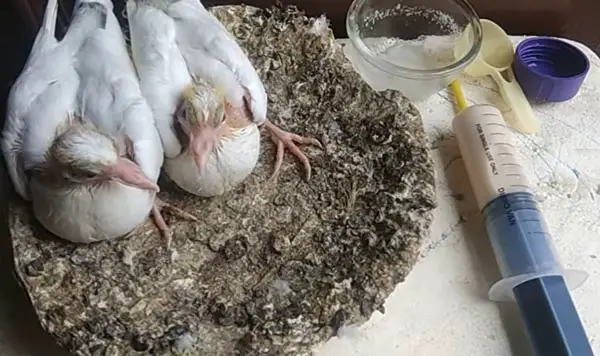
Also, there’s another method. Instead of taking the plunger out you can use a silicone pipe to feed the baby. Attach one end of the pipe to the syringe’s opening and push the other end inside the bird’s mouth. Slowly pump the plunger bit by bit and allow the baby to drink in small amounts.
Don’t push too hard or the baby may choke or regurgitate from its mouth.
Step 4: Feeding The Bird
Once you’re sure that the food is at room temperature, let the bird drink the mixture for a few minutes. Notice its crop while you’re feeding it. The crop is a round part of its body placed right on top of its breastbone, or under the throat.
Both adults and baby pigeons have crops. However, babies’ crops are more prominent. As the bird eats, you’ll see its crop filling up. Keep feeding it until the crop seems almost full. You don’t want it to be completely filled since that may cause the baby to vomit. Experts suggest filling up to 75% of the crop.
Also, you shouldn’t feed the bird every hour. Once fed, the food will stay for at least 2-3 hours. Just look at the bird’s crop. If it’s full, you don’t need to feed it. If it’s empty then it’s time to be feeding the bird. Pigeon specialists recommend that a baby pigeon should be fed 4 times daily after it’s hatched.
Step 5: Making A Change In Food
With the weeks passing by, you should not only make the formula mixture thicker but also feed the bird less frequently. Once the bird is 3 weeks old, you can start feeding it small pieces of fruits or vegetables. Also, you can teach the bird to eat and drink from a small bowl at this stage.
Pigeons can actually eat a lot of things. You can feed your baby bird the normal foods that we eat. But make sure not to overfeed them. Whatever you feed, just make sure that it’s safe and is fed a small amount.
Alternative Foods For Baby Pigeons
Once a pigeon is three weeks of age, you can start mixing other items into its diet. Let’s have a look at a few of these.
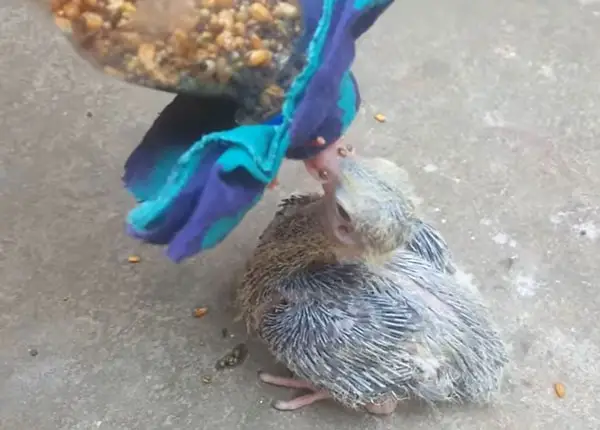
Digestive Enzymes
This can be added to a pigeon’s food for added enzymes. Enzymes help develop the digestive system when crop milk isn’t available and promote better gut health. If you add enzymes to your baby bird’s food, allow the enzymes to work in the food mix for half an hour before feeding it to your bird.
Seeds
Consider seeds to be an additional food rather than a primary one. The reason is they’re high in fats and low in minerals and calcium – these things are vital for bone development. Adding some seeds to a food mixture when the baby is at least one or two weeks old can help give it a varied diet.
Macadamia Milk
Milk produced from macadamia nuts can be used if you’re planning on creating a formula mixture yourself. The milk is safe to use for pigeons as its non-dairy.
Foods You Should Not Use To Feed Baby Pigeons
Not all foods are safe for baby birds. Let’s see two of these foods that are unsafe for baby pigeons.
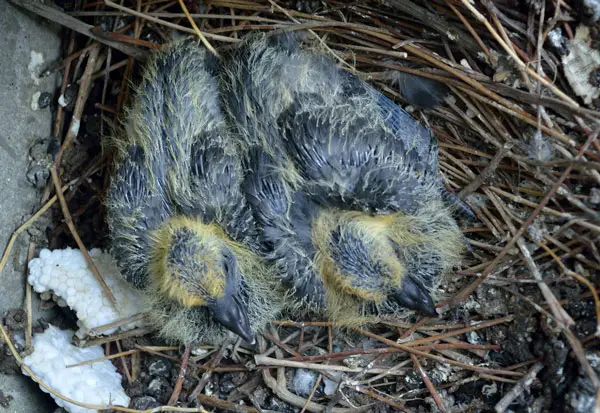
Insects
Adult wild pigeons will sometimes eat insects but they’ll mostly eat seeds and fruits. Baby pigeons do not have enough digestive capacity to digest insects easily, thus feeding insects to them can cause digestive issues.
Dairy
Baby pigeons can’t digest dairy. Macadamia milk is a good non-dairy milk that is used widely for feeding baby birds.
If you’re interested in learning more about pigeon racing, you might find our articles on the cost of racing pigeons and the challenges of pigeon racing informative. Our article on the cost of racing pigeons discusses the various factors and expenses involved in this popular sport. Meanwhile, our article on the challenges of pigeon racing explores the difficulties and obstacles faced by pigeon fanciers in the world of racing pigeons.Frequently Asked Questions
Let’s have a look at a few commonly asked questions about baby pigeon food.
Answer: They should only be fed with non-dairy milk such as Macadamia milk. Baby pigeons can’t digest dairy, thus they’re not good food for the birds.
Answer: For the first few weeks the water from the formula mixture will be enough for a baby pigeon’s water needs. Start giving your baby pigeon water in a bowl once it’s 6-7 weeks old.
Final Words
Feeding baby pigeons isn’t that complicated but requires diligence. You should always check their crops to see whether they need food again or not. In the first week or so after hatching, feeding needs to be done frequently. As the birds grow older than a week, the feeding gets less and less frequent.
Hopefully, this guide was helpful in adding up to your baby pigeon food knowledge. Always remember not to over or underfeed the bird and have a varied diet when the baby is older.
In this way, you’ll ensure your baby pigeons are getting balanced nutrition which is required for their proper growth.
